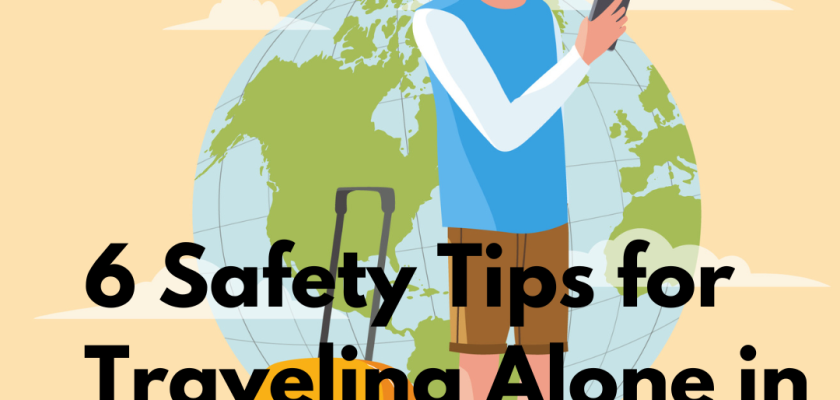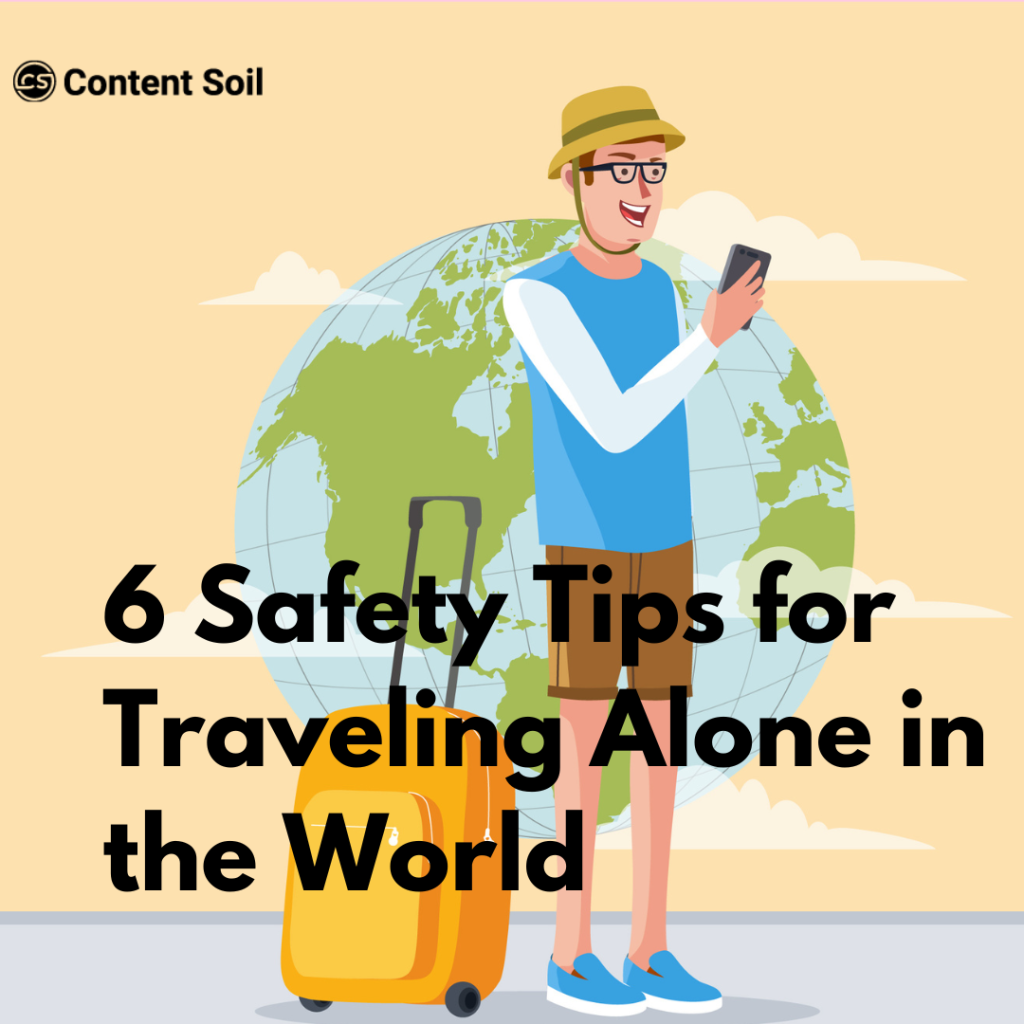Have you ever considered traveling without a companion? Solo travelers can enjoy seeing the sights at their speed without worrying about holding up their traveling partners. You won’t be slammed with demands from other people’s agendas. You may relax and take in the sights, have quiet lunches, and spend more time at the places that interest you most because you won’t have to share your time with anybody else.
Feeling anxious or uneasy about going on a trip alone is natural, especially in a foreign location where you won’t know many people. Thankfully, some astute ways exist to ensure one’s safety while adventuring alone. Consider these six tips if you’re worried about your safety while travelling alone.
6 Safety Tips for Traveling Alone in the World:
1. Talk to Reliable People Before You Leave and Maintain Contact While You’re Away:
Let a loved one back home know where you will be and what you will do by sending them your trip details. Before venturing alone, you should also inform the hotel personnel of your whereabouts and anticipated return time.
U.S. citizens and nationals travelling or residing abroad can enrol on their trip with the nearest U.S. Embassy or Consulate for free through the Smart Traveller Enrollment Programme (STEP). If you sign up for STEP, the embassy will send you updates on the security situation in your destination country so you can make educated decisions about your trip. With the STEP service, the U.S. Embassy can keep track of your whereabouts and find you faster in an emergency. It also makes it easier for loved ones to contact you in an emergency.
If you’re travelling alone and want to maintain contact with home or the office, it’s a good idea to see what services your smartphone carrier offers in your destination. When you have access to Wi-Fi, you can also check in by email or social media.
2. Make an Emergency Plan:
In a perfect world, you wouldn’t have to worry about any illness, accident, or theft while on the road. It’s prudent, though, to be prepared for the unexpected. Find out ahead of time where the closest hospitals, police stations, and other emergency facilities are located. Learn some basic survival phrases in the language of the country you’re visiting to communicate with locals in an emergency.
Ensure you have the necessary immunizations by visiting your doctor or a travel clinic before departing. Prescription medications, mosquito repellent, and other measures to keep disease-carrying insects at bay should all find a place in your suitcase. To avoid getting sick while on the road, it’s a good idea to learn as much as possible about the quality of the drinking water, the fresh vegetables, and the restaurants in your locations.
3. Secure your Valuables:
When going out, take only the essentials with you, such as your phone, credit cards, cash, identification, and a photocopy of your passport. Keep these hidden in a bag you can easily access. Don’t set down or hide away bags containing these things.
A photocopy of your passport is recommended if your original is lost or stolen. Store the duplicate passport in a secure location that is not the same as where you keep your original passport. Send a copy home to someone you trust is a good idea. When traveling trains, buses, or any other kind of public transit, you must remain vigilant and secure your personal belongings. Keep spare cash, jewelry, the original passport, and other valuables in your hotel safe.
4. Don’t be a fool; don’t engage in reckless behavior:
Many of these pointers are useful anywhere you travel alone, including your own neighbourhood.
Avoid getting drunk, and always keep your drinks within easy reach. Never go somewhere with an unknown person.
When out and about on foot or in a vehicle, keep an eye out for other people.
If you’re feeling unsafe, it’s best to go somewhere busy with lots of people, like a restaurant.
If somebody asks, “Are you by yourself?” just claim you’re on your way to see a loved one.
Learn more about how to stay safe on your next trip by reading on.
5. Carefully consider your options in terms of safety:
Find out which parts of your trip should be avoided and which are safest. Find the most secure ways to get around and the most reliable public transit options. Accommodations with high safety ratings are easier to find when you know the area you will visit.
If possible, request a room on a higher floor that is still convenient to the hotel’s main facilities. If you’re in your room after check-in, ensure the security chain is fastened, and you never open the door to anyone you don’t know.
6. Get Travel Insurance:
Avoid losing money and time by being prepared for emergencies while on your trip. Trip cancellation and interruption insurance can cover weather, natural catastrophes, certain illnesses, and other unexpected events. Other types of travel insurance can assist in covering things like medical emergencies, repatriation costs, lost luggage, and more. Discover more about the benefits of purchasing travel insurance here.


